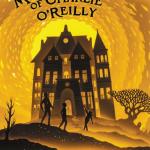This post is part of a series walking through the second volume of Abraham Kuyper’s Common Grace
We need to see that all suffering is a punishment for the curse, and that on the cross for His people Christ transformed the punishment into a sanctifying chastisement. So again we must look at how suffering is both a part of God’s curse and resisted by God. Part of our difficult in seeing this dual truth is our implicit Pelagianism that puts these things in tension. We would try to see God’s actions in their cosmic, organic whole with (from our perspective) God’s actions apparently chaotic and not to be resisted. There is some “experiential truth” here, ultimately this view is untenable. (561) Consider:
- Children suffer for their parents’ sin;
- Innocent and guilty alike suffer during a pandemic;
- the godless flourish while God’s people suffer.
All this tells us that the character of suffering is universal–not incidental. If this were not true, even the cross itself would be undermined:
“Those who understand the mystery of Golgotha, furthermore, know how in fact every Pelagian notion of God’s ordination in suffering either undermines the substitutionary nature of Christ’s suffering or marks it as the cruelest form of caprice.” (562)
So the “root of all suffering” is the curse–which in turn is tied to creation. The curse is not a foreign substance in creation, it is rather a privatio actuosa–a deprivation. (562) We’re like, Kuyper tells us, a train off the tracks of Divine order:
“Humankind has allowed the train of life to slip off the God-laid track of his holy order, and immediately thereafter the life force that pushes everything ahead of it has turned into an immeasurable force of destruction. This turning of the propelling force of life into a life-destroying force… is what Scripture calls the curse. It is not something new, not something added, not something that, like matter, is created separately and sent to us. Rather it is and remains precisely and entirely the same force that God brought into being within creation; but that force, intended to propel our life forward, became a force of death and ruin through the curse.” (563)
God cannot change this fact because He is true, and undoing His order would be an assault on Himself. But neither did God leave us to the effects of the curse. he lessens and delays its effects through common grace, and will one day undo it completely. (Even Jesus in the garden resisted before submitting!)
Dr. Coyle Neal is co-host of the City of Man Podcast and an Associate Professor of Political Science at Southwest Baptist University in Bolivar, MO













